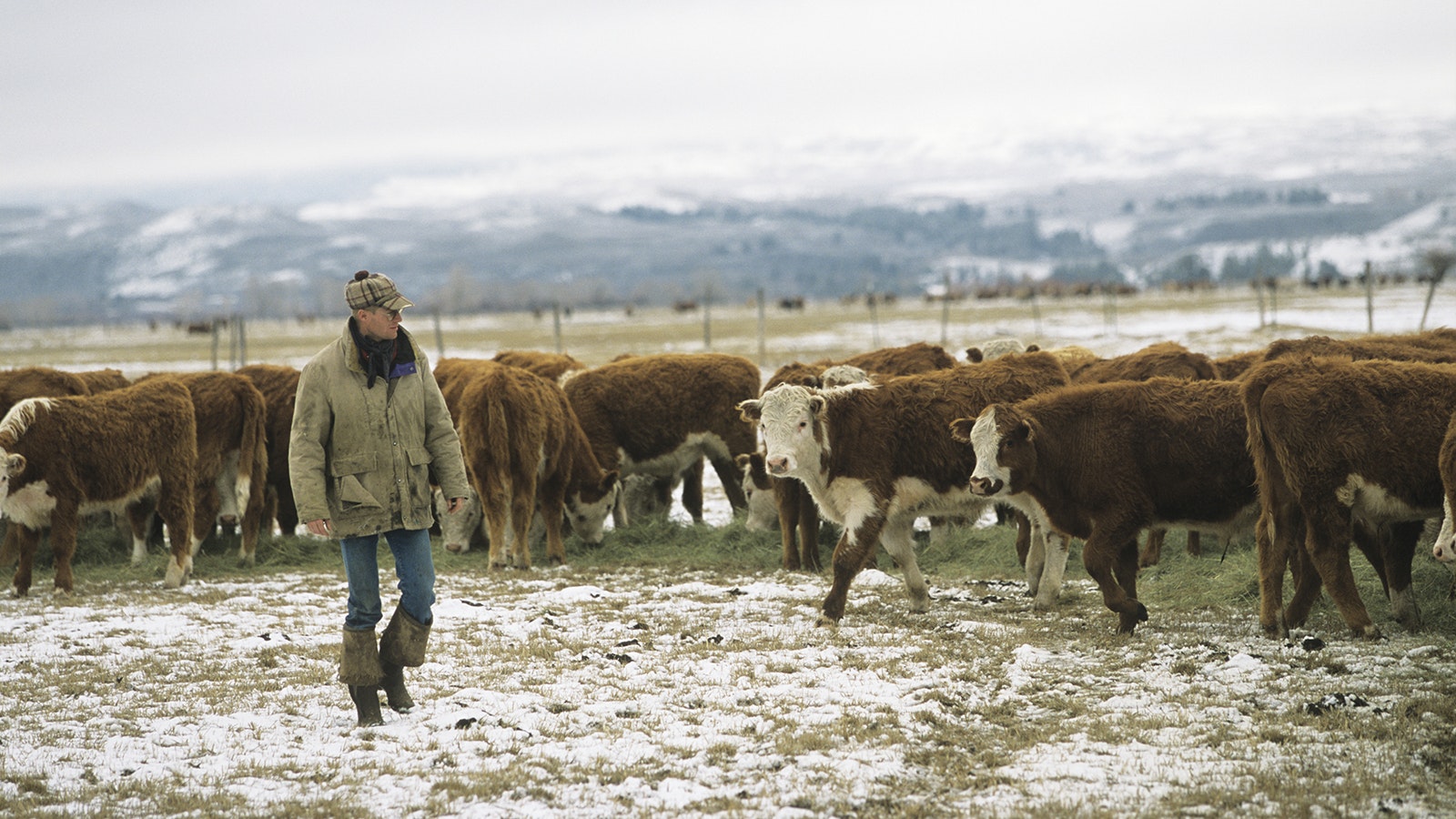The health care landscape in Wyoming just became a little bit rockier with the announcement that one of the three health care insurers available on the Affordable Care Act’s health care exchange in Wyoming is leaving the state.
Mountain Health Co-Op, which insures just over 11,000 people in Wyoming, told its members on Wednesday that it is pulling out of the Cowboy State by the end of this year.
That will leave the Wyoming network with just two providers, United Health care, which is a recent addition to the exchange, and Blue Cross Blue Shield.
Both United and Blue Cross have proposed large, double-digit rate increases to their offerings on the health care exchange. Blue Cross was seeking an average 20.7% rate increase, while UHC wanted 29.1%, according to acasignups.net, which specializes in following health care data related to the Affordable Care Act.
Mountain Health Co-Op had been looking at a 32% increase, according to the site, before pulling out of Wyoming.
Mountain Health CEO Blair Fjeseth told Cowboy State Daily Thursday morning that several things contributed to the insurer’s decision to leave the state, but the high cost of health care in Wyoming was right at the top.
“Wyoming is one of the highest cost of care states,” she said. “And so that’s created uncertainty. As a nonprofit, we operate with very slim margins, and so, the combination of truly high cost of care, the unique challenges of serving rural and frontier communities, and then the changing federal rules around APTC (Advanced Premium Tax Credit) make it really difficult to remain.”
The APTC was a tax credit to lower out-of-pocket costs of health care coverage on Affordable Care Act health care exchanges, to make the plans more affordable. They are set to expire at the end of the year.
“Those were extended and expanded during (the) COVID (19 Pandemic), and they sunset at the end of this year,” Fjeseth said. “And I know there was a push on the federal level to keep them but they were not voted to extend. Across the country, that has led to increased rates and we believe, as does the rest of the industry, that a lot of people are going to lose health care and health coverage because of it.”
Why Smaller Population Leads To Higher Cost
The rural nature of much of Wyoming contributes to the high cost of insureing people.
Health care companies, like any company, can lower prices when there’s economy of scale, because they’re spreading the cost of overhead for a system around to more people.
Wyoming is the least populated state in the nation, a place where cattle outnumber people two to one, according to National Beef Wire, which has calculated cattle vs human population by state.
With fewer people to share the burden of overhead for medical care facilities, it means every individual has to pay more to help keep the lights on, over and above whatever their procedures cost.
An unfavorable economy of scale is not the only thing that makes Wyoming’s health care market challenging, according to Wyoming Department of Insurance Deputy Commissioner Tana Howard.
“There are a lot of factors that play into the market,” she told Cowboy State Daily. “Our rural nature and the access to care, the number of providers in Wyoming, the overall cost of health care, the health conditions of Wyoming citizens, and, in addition, that we are an aging population. Take all of those and add state and federal law changes. There’s a lot of uncertainty in the health insurance market throughout the country.”
The changes at the federal level have been significant, Howard added.
“Insurers do not know how these changes are going to affect them,” she said. “We are hearing from multiple states that insurers are pulling out or making additional rate changes from plan year 2026.”
In fact, Mountain Health Co-Op has proposed a 25% jump on its health care exchange plans in Montana for 2026, according to a report from the Montana Free Press.
Not Ruling Out An Eventual Return
The loss of an insurer on the health care exchange does mean less competition in Wyoming, both Howard and Fjeseth said.
“Competition is good,” Fjeseth said. “It draws down prices and we need that. So losing another carrier in Wyoming is not great. It’s not ideal.”
Wyoming has been a great market for Mountain Health, Fjeseth said, and the company would like to return to the Cowboy State at some point.
“I’m not just saying this to say it,” she said. “But I’ve never encountered more gracious, kind, giving, charitable people in my life than I have in our years in Wyoming, from just brokers who have worked to expand our network for this and man, our members are just incredible people. And I would also just say the Department of Insurance, they’re protecting consumers. I believe they have the consumers in mind with every decision they make.”
Fjeseth has already had some preliminary conversations with Wyoming officials who have reached out to her, asking what they could do to win the company back.
“We’ve had some great conversations with different parties around the state about how we can help to improve Wyoming’s landscape in the health care space,” she said. “So, I wouldn’t count us out forever, but definitely for the next couple years while we regroup and rebuild and figure out what changes are being made in the marketplace and how we can adapt to those.”
More About Those Federal Changes
Many of the changes at the federal level that Fjeseth referenced are coming out of the One Big Beautiful Bill Act, which President Donald Trump signed into law on July 4, including the expiration of health-care exchange subsidies and new Marketplace rules.
The Congressional Budget Office has estimated the number of uninsured people will rise by 1.8 million by year 2034. About half of those are related to impacts of the legislation, according to the CBO.
The Kaiser Family Foundation Health News, an independent, nonprofit focused on health policy research, has estimated that 17 million people will lose their health insurance in the next decade or so due to the changes in the OBBBA.
Other key changes made by the bill:
• Shortens the open enrollment period by a month
• Eliminates the year-round special enrollment period for those with incomes up to 150% of poverty.
• Adds a new $5 monthly charge for enrollees who fail to verify ongoing eligibility for subsidized plans.
• Adds additional documentation requirements for incomes when applying for premium tax credit.
• Disqualifies Deferred Action for Childhood Arrivals (DACA)recipients from ACA Marketplace coverage by excluding them from the definition of “lawfully present.”
• Requires repayment of any excess tax credits, in cases where enrollees’ incomes were different than originally estimated.
• Requires pre-enrollment verification for income, immigration status, health coverage status, place of residence, family size, and any other information deemed necessary by the Secretary of Health and Human Services.
Wyomingites Still Have Options
Insurance is a giant game of risk, one that insurers play with caution. Given that, Howard believes that eventually, as the marketplace digests all of the changes, insurers like Mountain Health Co-Op may return to Wyoming.
“Prior to these recent federal changes, Wyoming had been seeing significant growth in marketplace enrollment,” she said. “Marketplace enrollment has almost doubled in the last five years.”
Changes have created risks, however, that insurers are still working to understand, she added.
“Once insurers have a better idea of how these changes will affect Wyoming, and they have a better idea of what they are dealing with, we think they will be more likely to enter or re-enter the market,” she said.
In the meantime, Howard wants consumers to know that they do have options.
“We still have two insurers on the marketplace, and hundreds of licensed insurance companies that sell various health insurance products in our state,” she said. “Of course we hope for more competition and growth in the future, but it’s important for Wyoming citizens to know qualified health plans are available in Wyoming.”
Shopping around and getting quotes from multiple insurers helps ensure the best deal, she added.
“The DOI has health insurance shopping tools and guidance documents on its webpage,” she said. “Although the DOI can’t recommend an insurer or plan, we can answer any questions consumers may have about insurance. Insurance is complicated, and DOI is here to help. Consumers can call or email any time.”
Wyoming Insurance Commissioner Jeff Rude, who was traveling on Thursday, told Cowboy State Daily his office will do everything it can to help consumers find new plans.
“We are disappointed that Mountain Health Co-Op is leaving the Wyoming market,” he said. “(We) will do everything we can to assist consumers in finding appropriate coverage during this difficult time. We are standing by to answer any questions consumers may have.”
Solving The Rural Health care Equation
Fjeseth said Mountain Health Co-Op will continue to have a footprint in its original location, Montana, as well as a continued, small footprint in Idaho.
Both are states where she acknowledged the company faces many of the same challenges that they face in Wyoming, like smaller populations spread out over wider geographic areas.
“Those struggles are not unique to Wyoming,” she said. “It’s something other frontier communities are facing. How do we tackle the challenge of few people over large geographical distances? How do we serve them in the best way? That’s the question I’m constantly trying to figure out the solution for.”
It’s something she believes may require a more national response than state by state by state.
“We as a country, we need to come together,” she said. “And, in my opinion only, oftentimes, we’re making big decisions on our industry and regulations, and we forget the frontier in rural health communities. But that is such a key part of the fabric of this country, and we just have to do better. We have to all come together and figure out how we can serve people and communities in deeper, more meaningful ways.”
Health care, she added, might be one of those areas where it shouldn’t just be about the bottom line.
“I’m biased, because I’m from a nonprofit company,” she said. “But I hope that as a country we can stop looking at people just as dollars and cents when they’re sick, and I kind of think, ‘Shame on us.’
“I think we need to look at people like how we would take care of our moms and our dads and our siblings,” she continued. “And I think the nonprofit model works better for that, because you’re mission-driven versus profit-driven. When profits are driving decisions, people are ultimately left out and impacted in negative ways.”
Renée Jean can be reached at renee@cowboystatedaily.com.





